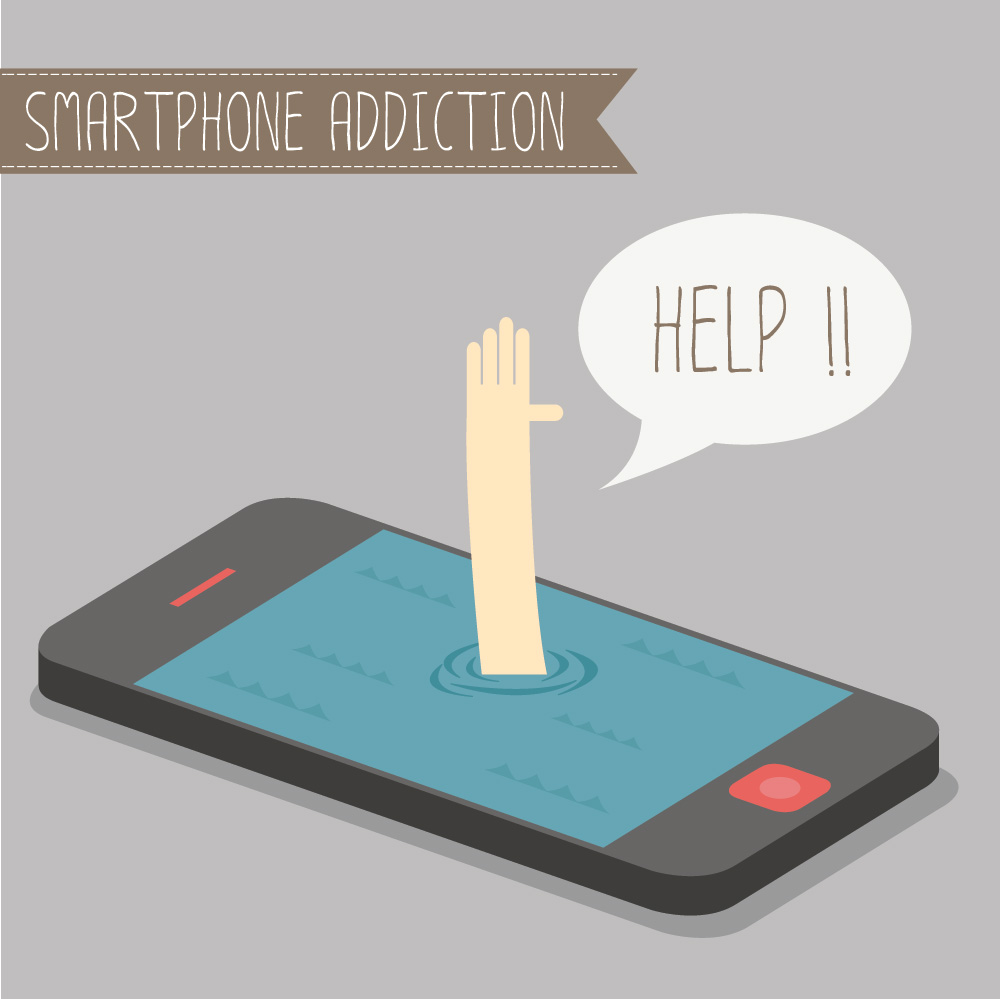Food, books and OTT content—before October 2022 came along, I believed I had a fixation with just these three components of my life. I never assumed any of these to be overtly harmful, especially since I regulate my consumption of all three with a strict hand and a few bouts of “cheat days”. On the other hand, immersing in food, book and content culture brings with it an abundance of joy, knowledge, community feeling, and even love. So, I always assumed, my fixations basically balanced out the good and the bad well enough to let me retain them. In fact, I believe these fixations are actually beneficial and essential as long as they don’t turn into actual addictions.
In early October 2022, I took a luxury cruise vacation with my partner to celebrate his birthday. Everything changed after the trip because, during it, I realised that I did have an addiction: to my smartphone with a 5G-enabled mobile network connection. In an era where we are all trying to actively overcome the digital divide, especially the digital gender gap, admitting that I, as a woman, have an addiction to the very thing that is supposed to empower my kind, feels strange if not outrageous. But that’s where my privilege comes in.
While, according to reports, only 30 per cent of Indian women have access to and use mobile network, I’m an urban Indian citizen with unlimited access to the best quality smartphones and digital devices, reliable and efficient WiFi connection at work and at home, and 5G-enabled SIM cards that provide me with the best network coverage imaginable in India. That’s my privilege. Privileges, by nature, are things you often take for granted and never overthink about unless your conscience calls for it.
For a woman who hasn’t taken the privilege of mobile phone access for granted, digital empowerment is an undeniable force for good. For me, I realised during two days of the cruise vacation, digital empowerment was a privilege I managed to turn into an addiction, to the detriment of my mental health. As I take stock of my realisations and share them below, I hope every digitally empowered millennial or Gen Z woman in India today also takes another look at the way we are attached to and utilise our phones. Are we making the best use of these devices we can? Is the device in our control, or are we slaves to it? Are we obsessed, even addicted to them?
These are the very questions I was forced to ask myself during the two days I had to live without any network connection. You see, there is no network connection while you’re at sea unless you utilise a ship or cruise’s satellite connection—which in turn can be weak, unreliable and expensive. So, you may have the best smartphone the world has to offer, and it’ll turn utterly useless while you’re on a cruise, unless you pay a hefty amount to tap into a satellite connection. During those two fateful days of forced and complete digital detox, here are a few things I realised about my mobile phone addiction and my mental health.

I Learned The True Nature Of My Phone Addiction
According to a 2021 study published in the International Journal of Environmental Research and Public Health, people with phone addiction differ greatly from people with internet addiction via PCs and laptops because smartphones “allow users to access the internet continuously regardless of time and space.” The moment I lost network connectivity on my smartphone, I realised just how continuous my engagement with it was. I depend on my phone for all kinds of daily activities, ranging from my work to my personal life, including financial transactions, managing transportation and even deciding what to eat for dinner (and often where to eat it). The phone is my source of connection with the world. In fact, the three fixations I mentioned before are also, nowadays, dependent on my phone! It took two days without that source for me to realise that I was indeed a slave to my phone instead of it being just another device I use.
I Suffered Indifference After Crippling Anxiety
For the first few hours after I lost network connectivity, I barely noticed that I was missing anything. But when checking my phone for WhatsApp messages and posting stories on Instagram are regular habits, being cut-off from all the connections I depend on my phone for gave me crippling anxiety. It was very difficult to calm down because I experienced a strange mixture of separation anxiety and fear of missing out (FOMO). It was only after I fell asleep that night and woke up at dawn the next day that I felt a strange indifference towards the need to check my phone. As I left my phone in my cabin and stepped out to meet a brand new day, I did so with absolute peace of mind for the first time in months.

I Found New Things To Engage With
As the day went along, I realised that instead of using my eyes and other senses to grasp the world, I had given over my agency—to a large extent, if not completely—to my phone. Without the phone camera to record things for me, I was able to soak in the beauty of the Arabian Sea without distractions. Later in the day, I recreated every colour I captured with my eyes on a small piece of canvas while feeling joyful about the fact that I’d retained so much. Without trying to capture every beautiful dish I came across, I felt I could taste everything better. I certainly got more exercise, observed people around me better, and even felt more engaged while having conversations with my partner and others on the cruise.
I Discovered True Stillness
We often talk about peace of mind, but to experience it in reality, completely, one needs to experience stillness first. Stillness means an absolute absence of movement and sound, something people who meditate utilise for complete mental and physical harmony with nature. Usually, a lot comes in the way of experiencing stillness, but for many of us, the real culprit is phone addiction even when we don’t realise it. After all, phones keep our hands busy while engaging our minds through all the connections it offers. Once my engagement with the phone was eliminated, I found myself feeling a true stillness, followed by peace of mind.
While choosing to go on a digital detox can be liberating for many, my stint without any phone network for two days taught me a lot about myself. Yes, it did feel liberating and peaceful after a while, but the first things that hit me were the realisations that, a) I was too attached to and dependent on my phone, and b) I didn’t understand how invasive phone addiction can be. Now that I’ve met both realisations head-on and understood what it might take to overcome it in the long run, I know I’m a privileged woman who needs to hold herself accountable for the successes she produces through responsible phone usage. That’s where I stand now. What about you?